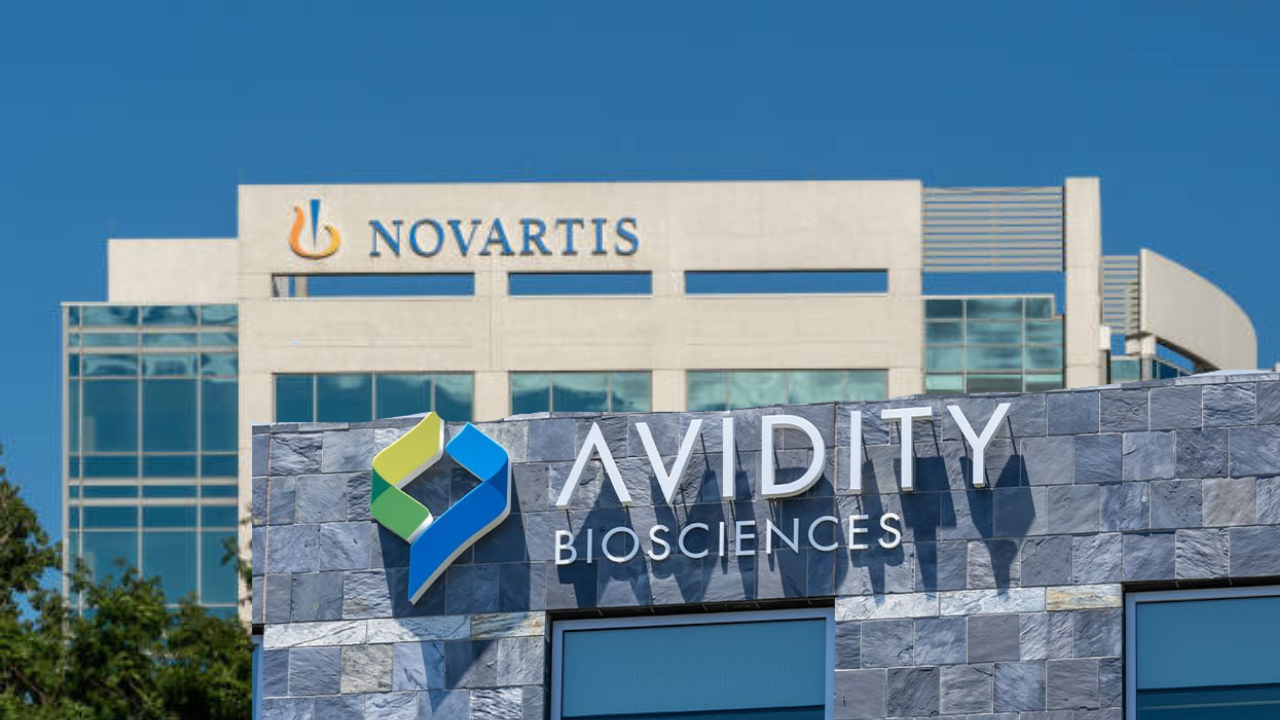Novartis to Acquire U.S. Biotech Avidity Biosciences in $12 Billion All-Cash Deal
Novartis to Acquire U.S. Biotech Avidity Biosciences in $12 Billion All-Cash Deal
By
Junia Wells
Last updated:
October 27, 2025
First Published:
October 27, 2025

Swiss pharmaceutical powerhouse Novartis AG has announced plans to acquire Avidity Biosciences, a cutting-edge U.S. biotechnology firm, in a $12 billion all-cash transaction, marking one of the largest biotech takeovers of 2025. The acquisition underscores Novartis’s growing commitment to RNA-based therapeutics and its ambition to lead the next wave of genetic medicine innovation.
Under the terms of the deal, Novartis will pay $72 per share in cash to Avidity shareholders — representing a 46% premium over Avidity’s closing share price of $49.15 last Friday. The deal, which values Avidity at nearly $12 billion, is expected to close in the first half of 2026, pending regulatory approvals and customary closing conditions.
Strategic Expansion into RNA Therapeutics
The acquisition will give Novartis access to Avidity’s proprietary antibody oligonucleotide conjugate (AOC) platform, a groundbreaking technology designed to deliver RNA therapeutics precisely to muscle tissue. This delivery system has shown strong potential in addressing diseases that previously lacked effective treatments.
“Avidity has built an industry-leading RNA delivery platform with deep expertise in muscle-targeted therapeutics,” said Vas Narasimhan, CEO of Novartis. “We are excited to accelerate these programs and bring forward new treatments that could transform the lives of patients with serious genetic conditions.”
As part of the acquisition agreement, Avidity Biosciences will spin off certain parts of its business — including its early-stage precision cardiology programs — before the deal closes.
Market Context and Growth Forecast
Following the announcement, Novartis raised its sales growth outlook, projecting its compound annual growth rate (CAGR) between 2024 and 2029 to rise from 5% to 6%. Analysts see this as a direct result of the Avidity acquisition, which adds a promising portfolio of next-generation RNA-based treatments to Novartis’s drug pipeline.
The deal also reflects a broader trend among major pharmaceutical companies seeking to diversify into RNA and genetic medicine, a field that has gained massive momentum since the success of mRNA-based COVID-19 vaccines.
Avidity’s Breakthroughs and Market Momentum
Headquartered in La Jolla, California, Avidity Biosciences has become a leader in developing RNA therapeutics that target rare neuromuscular diseases such as myotonic dystrophy type 1 (DM1) and facioscapulohumeral muscular dystrophy (FSHD). The company’s novel approach allows RNA molecules to reach muscle cells more effectively, overcoming one of the key barriers in gene-based drug delivery.
Avidity’s stock has surged nearly 70% year-to-date, reflecting growing investor confidence in its clinical pipeline and technological potential. With a current market capitalization of around $7.2 billion, the acquisition represents a significant premium on its recent valuation.
Strengthening Novartis’s U.S. Presence
This acquisition forms part of Novartis’s broader plan to expand its U.S. research and development operations, which the company estimates will require over $23 billion in new investment. Earlier this year, Novartis announced it would build a second major R&D hub in San Diego, alongside its existing facilities in Cambridge, Massachusetts.
In addition to the Avidity deal, Novartis has signed major partnerships with Anthos Therapeutics and Regulus Therapeutics in 2025, targeting innovation in cardiovascular and kidney diseases. Together, these moves reinforce Novartis’s focus on therapeutic areas with high unmet medical needs and large global patient populations.
Industry Impact and Investor Outlook
Analysts believe this acquisition cements Novartis’s position as a frontrunner in the next generation of RNA-based drug development. The company’s willingness to pay a substantial premium signals strong confidence in the commercial viability of Avidity’s technology and pipeline.
Investors have responded positively to the move. Novartis shares closed at $130.36 on Friday, reflecting continued optimism about the company’s growth prospects. Meanwhile, Avidity’s stock is expected to climb significantly once markets open, narrowing the gap toward the $72 per-share buyout price.
A New Era for Genetic Medicine
With the acquisition of Avidity Biosciences, Novartis is making a bold bet on the future of genetic and RNA-based therapies — a space that could redefine the treatment of complex muscular and genetic disorders over the next decade.
If the integration proceeds smoothly and ongoing clinical trials deliver promising results, this deal could not only reshape Novartis’s innovation pipeline but also accelerate the global pharmaceutical industry’s shift toward precision medicine and RNA therapeutics.
Popular articles
Subscribe to unlock premium content
Why Urban Beekeeping Is Becoming a Multi-Million-Dollar Eco Trend

How Allbirds Turned Wool Sneakers Into a Global Sustainability Trend

The Economics of Renting Hypercars to Tourists in Monaco

Why Urban Beekeeping Is Becoming a Multi-Million-Dollar Eco Trend

How Allbirds Turned Wool Sneakers Into a Global Sustainability Trend

Why Urban Beekeeping Is Becoming a Multi-Million-Dollar Eco Trend









